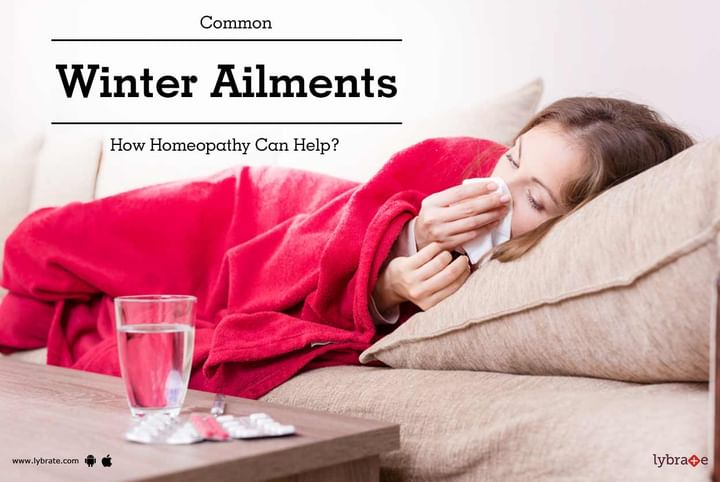Get the App
For Doctors
Login/Sign-up
Last Updated: Jan 10, 2023
BookMark
Report
Common Winter Ailments - How Homeopathy Can Help?
The colder temperatures and climate changes that occur during winters are connected with a group of medical issues, which can weaken your body. Herbs, medicines, therapies, healthy diets and lifestyle changes can give helpful results. However, for some, homeopathy conveys quick and long-lasting results to these issues even as they are simple to utilize. Yet, they must necessarily be prescribed by a doctor. Here are a few homeopathic treatments for some of the common winter ailments:
Joint pain or arthritis
- Actea spicata – Useful when there is pain in the joints and every touch or movement of the bones hurts
- Apis – Helpful when there is redness and swelling and warmth may cause pain
- Arnica – One of the best solutions when a patient feels bruising pain. Movement causes a lot of pain in this condition.
- Bellis perrenis – Works the best when joint pain occurs and increases in the cold and icy wind
- Berberis vulgaris – Very effective when a patient feels rheumatic pain, which gets more painful from standing or due to any movement
- Aconite – Taken when there is pain in the chest from exposure to cold and cool dry winds. It gets worse in the evening and hinders the sleep.
- Bryonia alba – A cure for dryness of mucous with pain that is frosty
- Ferrum phos – Helps cure bronchitis in its initial stages, which is more terrible around evening time
- Opecacuanha – Used to cure bronchitis with rattling of mucous. It is better for the patient to go outdoors and rest. Also he/she may realise this is more regrettable during winters.
- Phosphorous – Helps cure painful bronchitis with loss of voice or roughness in the throat. The situation might be more terrible at night, from breathing in chilly air.
Chilblains
- Agaricus – Better for moderate movement, when conditions get worse in the open or chilly air
- Crot. horridus – When the chilblains are worse in the morning or during soggy, wet climate
- Hepar sulph – When the blains get worse with the frosty air and leaves water like skin that is saggy
- Aconite – For colds that happen all of a sudden from icy, dry climate or frosty winds and the condition becomes more terrible during the evening
- Allium cepa – For colds from icy, soggy climate with harsh nasal release
- Arsenicum collection – For colds with wheezing and blazing of bodily fluid. They become more awful from chilly or wet climate.
- Euphrasia – For colds with much thin flat mucous, which get more awful in warm air and at night.
- Aconitum napellus – For coughs that happen after exposure to cool and dry chilly winds. The cough increases during the evening, in a warm room or in chilly air.
- Belladonna – For dry sensitive cough, which is more terrible during the evening and while resting
- Drosera – Used to treat whooping cough and other uncontrollable coughs, where the patient ends up choking and vomiting



+1.svg)
